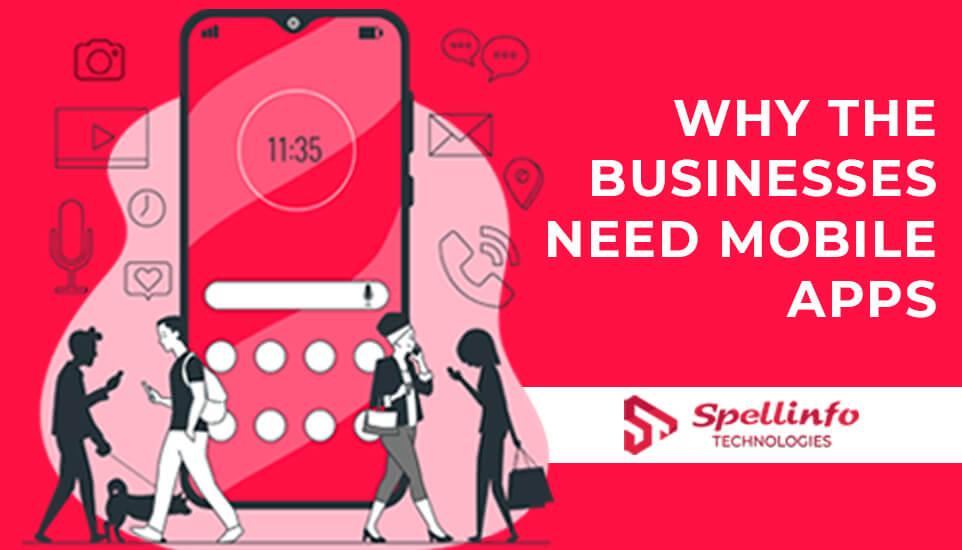
Mobile applications not only help promote loyal customer bases and gather valuable customer data but also offer numerous ways for businesses to enhance the overall customer experience (CX). It's crucial for businesses to recognize the complicated benefits these apps can provide.
While the option to access the internet via desktop computers still exists, the popularity of engaging online experiences has significantly shifted towards mobile applications.
Not every small and medium-sized business (SMB) necessarily requires a mobile app, there are situations where its inclusion can prove highly beneficial. Mobile applications can assist SMBs in cultivating brand loyalty, overseeing business relationships, particularly when maintaining frequent interaction with customers or partners. Additionally, they can enhance promotional capability refine customer analytics, and simplify the online shopping experience. It's advisable for business leaders to examine the advantages of mobile apps as they assess the potential for such an app to contribute to their business growth.
In passionately competitive market sectors, businesses need to go the extra mile to promote customer loyalty. Mobile apps can provide a distinct advantage, amplifying opportunities for repeat business, elevating referral rates, and facilitate the adoption of new products and services
Mobile apps facilitate convenient one- and two-way communication channels between small and medium-sized businesses (SMBs) and their customers. This ease of communication fosters ongoing engagement, enabling businesses to track and adapt to evolving customer behaviors. Consequently, mobile apps can enhance customer satisfaction while keeping costs in check.
With a dedicated customer base, businesses gain greater predictability for both short- and long-term growth. Improved forecasting capabilities enable businesses to refine their offerings, customize products and services to align with customer preferences. To cultivate customer loyalty, companies can leverage loyalty card programs, conveniently managed and tracked through their mobile apps. Such loyalty creativity empower small and medium-sized businesses (SMBs) to secure repeat customer patronage.
Marketing efforts play a pivotal role in introducing new products and services to both prospective and existing customers. Mobile apps are particularly effective in enhancing marketing and promotional activities since they entail potential customers proactively seeking and installing the app. In essence, apps serve as a means to attract valuable leads within the business's marketing sphere. Subsequently, marketing teams can closely monitor app usage and employ targeted promotional strategies based on users' actions within the app.
Mobile apps offer valuable support to small and medium-sized businesses (SMBs) in launching marketing campaigns and swiftly adapting between multiple strategies. Advertising within apps demands lower capital investment compared to traditional channels like paid radio, TV, and print advertising, making it a cost-effective option for SMBs operating with limited budgets. Additionally, app promotions enable marketers to precisely target specific audience segments, generating quick demand and be set off market momentum.
In the digital realm, customers expect flexibility in their product and service selection and ordering processes. Businesses can create mobile apps to provide information and facilitate in-app purchases.
During the early 2010s, businesses started offering customers the option to place orders through mobile apps. Before this era, customers exhibited reservations, particularly with expensive purchases, when it came to ordering via apps. However, as users gradually became more at ease with making transactions on their smartphones, a substantial number of them began to favor this channel. In fact, according to a Statista report, product orders conducted through mobile devices witnessed a notable increase of over 20% from the third quarter of 2020 to the third quarter of 2021.
Businesses can adopt an multi-channel sales approach to provide customers with a seamless shopping experience across various devices. This approach ensures that customers can make purchases from any location. Small and medium-sized businesses (SMBs) can enhance their multi-channel experiences by manipulating a mobile app, which enables customers to shop and complete purchases directly from their smartphones.
Many business proprietors have found themselves subject to online reviews, occasionally without prior knowledge and sometimes with unfavorable tones. How does this influence you? A substantial 79% of users who analyzeonline reviews hold confidence in their accuracy.
Mobile apps incorporating push notifications serve as valuable tools for maintaining long-term engagement with customers and clients. Small and medium-sized businesses (SMBs) can effectively reach out to their entire user base or specific segments by sending notifications regarding product updates and promotional offers through these apps. Furthermore, they can employ precise targeting, considering factors such as location and prior engagement history, to deliver customized messages.
When configured correctly, app notifications can assist businesses in ensuring their brand or products remain prominently in customers' thoughts. This heightened brand awareness can empower businesses to boost online traffic, outshine their competitors, and ultimately drive increased revenue.
Mobile apps provide exceptional opportunities for data mining. Small and medium-sized businesses (SMBs) can examine carefully the data they gather to notice customer behaviors and reactions to marketing strategies. Furthermore, companies can integrate data from their mobile apps with information from various sources, including social media platforms and direct customer interactions. By combine and analyzing this data, businesses can gain deeper insights into customer interests and purchasing trends.